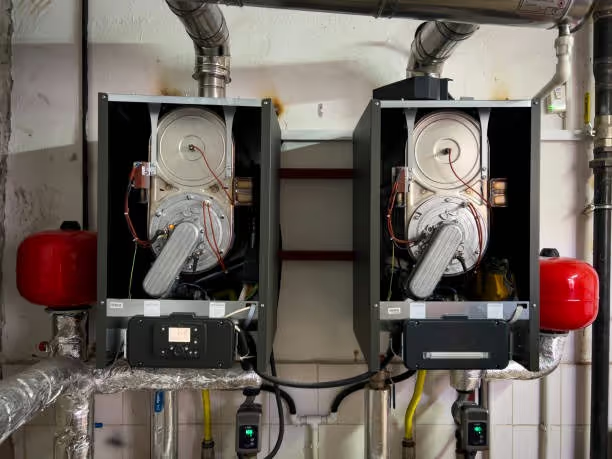Expert Water Heater Repair in Paradise Valley, AZ
Waking up to a cold shower or discovering a puddle around your water heater is a frustrating start to any day. In Paradise Valley, where a reliable supply of hot water is essential for daily comfort and sanitation, a malfunctioning unit can disrupt your entire routine. When your water heater fails, you need a prompt, professional solution from technicians who understand the specific challenges of our local environment. Our dedicated service is designed to diagnose and resolve your water heater issues efficiently, restoring comfort and peace of mind to your home.

Identifying the Problem: Common Water Heater Malfunctions
Water heaters are complex appliances that can exhibit a range of symptoms when they begin to fail. Understanding these signs can help you determine the urgency of the situation. Our certified technicians have the experience to diagnose and repair all common and complex water heater problems.
No Hot Water
This is the most obvious sign of a problem. The cause often depends on the type of water heater you own.
- For Gas Heaters: A common culprit is an extinguished pilot light. Other potential issues include a faulty thermocouple, which is a safety device that shuts off the gas if the pilot goes out, or a malfunctioning gas control valve.
- For Electric Heaters: The issue often lies with the electrical components. A tripped circuit breaker is the first thing to check. If that’s not the problem, one or both of the heating elements may have failed, or the thermostat could be malfunctioning and failing to signal the elements to turn on.
A Leaking Water Heater
Any leak from your water heater tank requires immediate attention to prevent significant water damage. The source of the leak determines the solution.
- Pressure Relief Valve: The temperature and pressure (T&P) relief valve may discharge water if the pressure or temperature inside the tank is too high. While it’s doing its job, a consistently leaking valve may indicate an underlying issue or a faulty valve itself.
- Plumbing Connections: Leaks can occur at the inlet and outlet connections on top of the tank. These can often be tightened or have their seals replaced.
- The Tank Itself: If you see water coming from the tank body, it is likely due to internal corrosion. Unfortunately, a corroded tank cannot be repaired and is a definitive sign that the entire unit must be replaced.
Strange Noises: Popping, Rumbling, or Banging
These sounds are almost always caused by sediment buildup at the bottom of the tank. Arizona’s hard water contains high levels of minerals like calcium and magnesium, which settle over time. When the burner or heating element turns on, it heats the water trapped beneath this layer of sediment, causing it to boil and create popping or rumbling sounds. This process is not only noisy but also dramatically reduces efficiency and puts stress on the tank, leading to premature failure.
Discolored or Smelly Water
If your hot water comes out rusty, brown, or with a metallic taste, it often points to a deteriorating anode rod. The anode rod is a "sacrificial" component designed to corrode instead of your tank’s inner lining. Once it’s fully depleted, the tank itself begins to rust from the inside out. If the water has a rotten egg smell, it’s typically caused by a reaction between the anode rod and bacteria that can thrive in the tank.
Our Diagnostic and Repair Process
When our technician arrives at your Paradise Valley home, they perform a comprehensive diagnostic check to accurately identify the root cause of the issue. This systematic process ensures we fix the problem correctly the first time. We inspect the power or gas supply, test the thermostat’s accuracy, check heating elements for continuity, examine the thermocouple and pilot assembly, and assess the condition of the T&P valve and anode rod. Once we pinpoint the problem, we explain the necessary repairs and use high-quality replacement parts to restore your water heater to optimal working condition.
Making the Right Choice: Repair vs. Replace
A common question homeowners face is whether to repair a failing water heater or invest in a new one. We provide an honest assessment to help you make an informed decision based on several key factors:
- Age: A typical tank-style water heater has a lifespan of 8 to 12 years. If your unit is approaching or has surpassed this age, replacement is often the more cost-effective long-term solution.
- Cost of Repair: If a major component like the tank has failed or the cost of the repair is close to 50% of the price of a new unit, investing in a new, more efficient model makes better financial sense.
- Frequency of Repairs: If you have had to service the unit multiple times in the past couple of years, it’s a sign that more components are likely to fail soon.
- Performance: A unit that struggles to provide enough hot water or shows signs of significant rust is a prime candidate for replacement. Newer models offer superior energy efficiency, which can lead to savings on your utility bills.
Comprehensive Service for All Water Heater Types
Our expertise covers the full range of water heaters found in Paradise Valley homes, ensuring we can handle any repair you need.
- Conventional Tank Water Heaters: We service both natural gas and electric models, addressing everything from burner assemblies and heating elements to thermostats and dip tubes.
- Tankless Water Heaters: These on-demand units require specialized knowledge. We can address mineral buildup, ignition failures, and flow sensor issues to keep them running efficiently.
Proactive Care for Long-Term Performance
The best way to avoid an unexpected water heater failure is through preventative maintenance. Given Arizona’s hard water, annual flushing is the single most important task you can perform. This process removes the mineral sediment that causes noise, reduces efficiency, and corrodes the tank. During a maintenance visit, a technician will also inspect the anode rod, test the T&P valve, and check all connections to ensure your system is safe and operating at peak performance, extending its service life and preventing costly emergency repairs.






